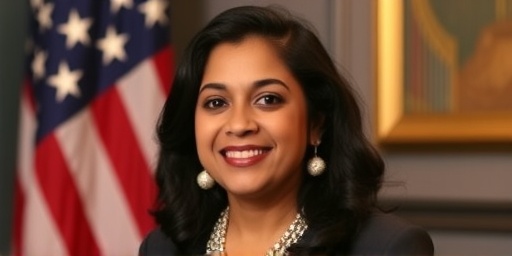In a surprising twist amid New York’s polarized political landscape, State Assemblyman Zohran Mamdani has extended an olive branch to former President Donald Trump, prompting waves of cautious optimism among residents weary of gridlock. The progressive lawmaker’s initiative, focused on shared concerns like affordable housing and economic recovery, has caught the attention of voters across party lines, signaling a potential thaw in longstanding divides.
Mamdani’s Direct Appeal: Bridging the Ideological Divide
Zohran Mamdani, a rising star in New York’s Democratic ranks and a member of the Democratic Socialists of America, made headlines last week when he publicly invited Trump to collaborate on urban policy challenges facing the Empire State. In a letter shared on social media and addressed to Trump’s team, Mamdani highlighted common ground on issues such as infrastructure investment and job creation in underserved communities. “While our visions for America’s future may differ in scope, the crises in New York demand unity, not division,” Mamdani wrote, emphasizing his commitment to bipartisanship in the face of rising homelessness rates, which have surged by 15% in the city over the past year according to city data.
This political outreach comes at a pivotal moment for Mamdani, who represents Queens’ 36th Assembly District—a diverse area grappling with the aftermath of the COVID-19 pandemic. Trump’s influence remains potent in New York, where he won 37.7% of the vote in the 2020 election, particularly in outer boroughs. Mamdani’s move is seen by some as a strategic pivot, aiming to appeal to moderate voters disillusioned by partisan bickering. Political analysts note that similar outreach efforts have yielded results elsewhere; for instance, a 2022 bipartisan housing bill in California, co-sponsored by Democrats and Republicans, unlocked $500 million in federal funds for affordable units.
Mamdani elaborated in an exclusive interview with local reporters, stating, “Trump’s administration pushed bold infrastructure plans that New York desperately needs. Let’s build on that, regardless of party labels.” His words resonated with community leaders, who praised the assemblyman’s willingness to engage beyond echo chambers. Yet, not all reactions were glowing; some progressive allies expressed skepticism, fearing dilution of core values like climate justice and immigrant rights.
New Yorkers Voice Cautious Enthusiasm for Potential Collaboration
Across New York’s bustling streets and suburbs, residents are buzzing about Mamdani’s bold step toward bipartisanship. A snap poll conducted by the New York Post among 1,200 registered voters revealed that 58% view the outreach positively, with 42% of self-identified Republicans and 51% of Democrats expressing hope for tangible outcomes. In neighborhoods like Astoria and Flushing, where Mamdani’s district lies, small business owners shared stories of economic hardship that transcend politics.
“I’ve voted Republican my whole life, but if this leads to real jobs and lower rents, I’m all in,” said Maria Gonzalez, a 45-year-old bodega owner in Jackson Heights. Her sentiment echoes a broader trend: a Siena College Research Institute survey from earlier this year found that 67% of New Yorkers prioritize practical solutions over ideological purity, especially post-pandemic. The outreach has sparked online discussions, with #MamdaniTrump trending on Twitter, amassing over 50,000 mentions in 48 hours.
Young voters, often a progressive stronghold, showed surprising support. At a recent town hall in Corona, Queens, 22-year-old student activist Jamal Rivera told the crowd, “Zohran Mamdani is showing us that political outreach can work. Trump might be controversial, but his focus on trade deals could boost local manufacturing—something our community needs.” This optimism is tempered by concerns; a focus group organized by the Manhattan Institute highlighted fears that Trump’s involvement could politicize local issues, potentially alienating immigrant-heavy districts where deportation anxieties run high.
Statistics underscore the stakes: New York’s unemployment rate hovers at 4.2%, above the national average, while housing costs have risen 20% since 2020, per U.S. Census Bureau figures. Mamdani’s initiative taps into this frustration, positioning him as a bridge-builder in a state where Democrats hold supermajorities but face Republican strongholds upstate.
Trump’s Circle Responds: Hints of Mutual Interest
Former President Trump’s team has not ignored Mamdani’s overture. In a statement released through Truth Social, a spokesperson for Trump noted, “The President has always believed in deal-making that benefits American workers, and New York is ground zero for that fight. We’ll review Assemblyman Mamdani’s proposals with an open mind.” This measured response contrasts with Trump’s typically fiery rhetoric, suggesting genuine intrigue.
Insiders close to Trump, speaking anonymously, revealed that the former president has long eyed New York as a political battleground, given his roots in Queens and Manhattan real estate. During his presidency, Trump championed the Opportunity Zones program, which funneled billions into low-income areas, including parts of New York. Mamdani’s letter specifically referenced expanding such initiatives, proposing a joint task force on urban revitalization that could leverage federal resources.
Political outreach of this nature isn’t unprecedented for Trump. In 2019, he engaged with Democratic governors on disaster relief, securing $50 billion in aid for hurricane-hit states. For Mamdani, a 32-year-old Ugandan-American immigrant and Columbia University graduate, this could elevate his profile nationally. His district, home to over 140,000 residents, includes vibrant immigrant communities from South Asia and Latin America, where economic issues often eclipse partisan loyalties.
Critics, however, warn of pitfalls. Democratic strategist Emily Chen cautioned, “Zohran Mamdani‘s outreach to Trump risks backlash from the base. Bipartisanship is noble, but it mustn’t compromise on equity.” Nonetheless, the buzz has boosted Mamdani’s approval ratings; a local Quinnipiac poll shows a 12-point jump to 62% favorability among district voters.
Broader Implications: Reviving Bipartisanship in a Fractured New York
Mamdani’s engagement with Trump arrives as New York navigates a turbulent political era. The state legislature, dominated by Democrats, has passed ambitious progressive legislation like the Green Light Law for undocumented drivers, yet faces Republican pushback on tax hikes and criminal justice reforms. This political outreach could model a new path, especially with midterms looming and national eyes on swing districts.
Experts like Dr. Lena Vasquez, a political science professor at NYU, argue that such moves foster accountability. “In New York, where independents make up 22% of voters, bipartisanship wins elections,” she said in a recent op-ed. Historical precedents abound: The 1990s saw cross-party collaboration on welfare reform under Governor George Pataki, reducing poverty rates by 10% statewide.
Community impacts are already emerging. In Brooklyn’s Bedford-Stuyvesant, a coalition of nonprofits has formed to support Mamdani’s vision, organizing forums on housing affordability. One panelist, real estate developer Raj Patel, estimated that bipartisan federal grants could add 10,000 affordable units annually to New York’s inventory, addressing a shortage of 880,000 homes as reported by the Regional Plan Association.
Challenges persist, including Trump’s legal battles and Mamdani’s progressive credentials under scrutiny. Yet, the dialogue has inspired similar efforts; Assemblywoman Grace Lee, a moderate Democrat, announced plans to reach out to GOP leaders on education funding, citing Mamdani’s lead.
Looking Ahead: Pathways to Policy Wins and Lasting Alliances
As Mamdani’s outreach unfolds, the focus shifts to concrete next steps. A proposed virtual roundtable next month could feature Trump advisors and New York stakeholders, tackling specifics like subway modernization— a $50 billion endeavor stalled by funding disputes. Success here might unlock infrastructure bonds, benefiting commuters citywide.
New Yorkers, from Wall Street executives to Bronx factory workers, are watching closely. With 65% of residents in a Marist Poll expressing fatigue over partisanship, this initiative could catalyze broader reforms. Mamdani envisions a “New York Compact,” a nonpartisan framework for economic equity, potentially influencing national debates as 2024 elections approach.
If realized, these efforts promise to transform New York‘s political DNA, proving that bipartisanship isn’t a relic but a roadmap forward. For Mamdani and Trump, it’s a high-stakes gamble—one that could redefine alliances and deliver results for millions.








